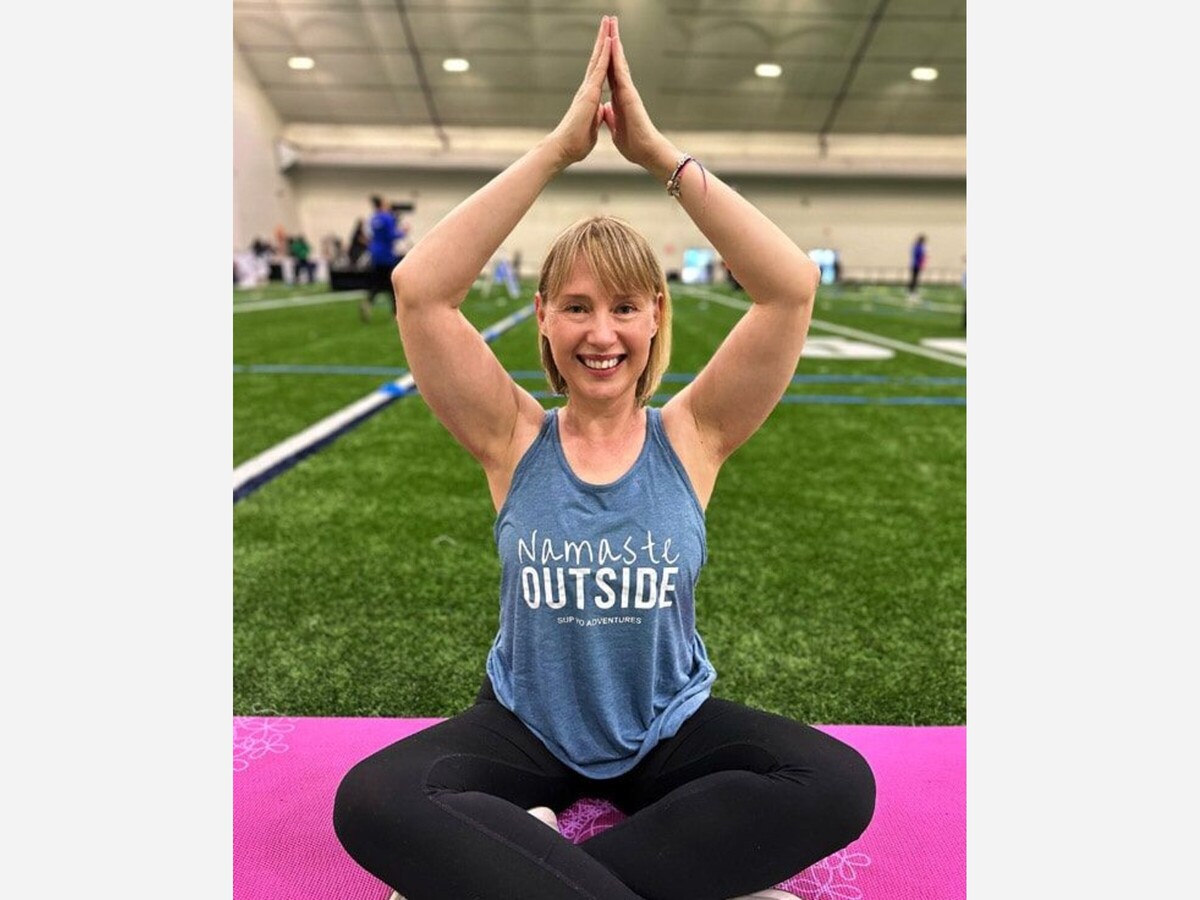Image

“Why me? Why not me? Why should I be any different from everyone else?” she asked herself in disbelief of what she had just learned. Her doctor told her the three words that would change her life: “You have cancer.”
Lydia Buckley teaches French at Milford High School. She lived a relatively normal life up until February of 2019, when she was diagnosed with stage two breast cancer. It shook her world to the core.
“I went through every stage of grief, from denial to bargaining, anxiety. I eventually reached acceptance. I’m grateful to my family, friends, and students who were there for me.” she said. “It was a really scary time in my life. I didn’t know if I was going to make it through. I told my husband that if I didn’t make it, he should marry someone like our accountant.”
After her diagnosis, she started wondering what she had done wrong. Why has she been unlovingly bestowed this lump of Suffering. Buckley had been taking care of a family member, which is when she stopped doing self checks. “Maybe I took too long,” she thought. “What if I had been checking? Would it not have been as bad?”
Self checking for breast cancer is when a person checks their breasts for lumps or any signs of the cancer. These could include swelling of the breast, pain in the area, thickening or reddening of the skin around the breast, and many more.
According to the American Cancer Association, a woman in the United States has a 13% chance of developing breast cancer. This means that 1 in 8 women will develop breast cancer in their lifetime. Buckley was one of the unfortunate few.
Breast cancer is one of the most common types of cancers in the world. The National Cancer Institute predicts that in 2023 alone, there will be around 300,590 new cases of breast cancer in the United States.
However, there is hope for people with breast cancer. The chance of a woman dying from breast cancer is around 1 in 39. This means that only around 2.5% of women diagnosed with breast cancer will die.
Buckley went to the Dana-Farber Cancer Institute in Massachusetts. She got help from excellent doctors and nurses. “They were with me every step of the way,” she explained. “They have counselors who helped me through the journey.”
Some people who survive cancer say that “the journey is a gift.” Buckley doesn’t quite agree with that. She says that “cancer has changed her outlook on life.” She started to do more things that make her happy.
Many people who survive cancer also start to appreciate life more, whether it’s spending time with their loved ones or by doing their hobbies. For Buckely, she started being more physically active. This, she said, was her “renaissance”.
“It doesn't need to take cancer in order for you to find joy and appreciate life,” she said, “Don’t wait for cancer to start doing what you really love.” For her, meditation was something that she had found joy in.
Buckely is working to bring yoga to her community. For teachers and staff, she offers yoga once a week after school. Once a month, she goes to Saturday School and gives kids the option of taking a yoga and mindfulness class in lieu of their Saturday-school detention. She is trying to start her Student Yoga Club up again.
“I do, however, have some concerns about the approach people take to the discussion of cancer, more specifically breast cancer.” she said. “Many people feel uncomfortable talking about any cancer, not just breast cancer.” Buckley wants to simultaneously bring awareness to breast cancer and end the stigmatization that comes with it.
Another part of breast cancer that Buckley wants to destigmatize is the breast part of it. “It’s a natural part of the Human body. It isn’t commonly known, but breast cancer isn't something only women can get.” It’s more rare, but men can also get breast cancer. “If you have breast tissue, you can get breast cancer.”
Around 1 in 833 men will develop breast cancer in their lifetime. However, this is not better. It actually makes things harder for men. Since it’s so rare, male breast cancer has not been studied as much. Men also tend not to go to the doctor when they have a medical issue. This means that out of the 2,800 new cases of breast cancer in males, 530 will most likely die. Studies from ONS Voice have found that the survival rate for women with breast cancer after five years is 86.4%, whereas for men it’s 77.6%.
Buckley has been working with multiple groups to bring awareness to breast cancer. One of these groups is LBBC, Living Beyond Breast Cancer. They help people find the information and support they need when going through the struggles of breast cancer, and helps them move on afterwards. She also works with the MBCC or the Massachusetts Breast Cancer Coalition. They fight for “community education about breast cancer, promote research advocacy, and chances to public policy.”
Buckley is now reaching her fifth year of being cancer free. She continues to do what she loves and hopes that people will make changes and push their loved ones to get checked regularly. “I hope that everyone will start getting involved. Tell the women in your life to get checked regularly.”